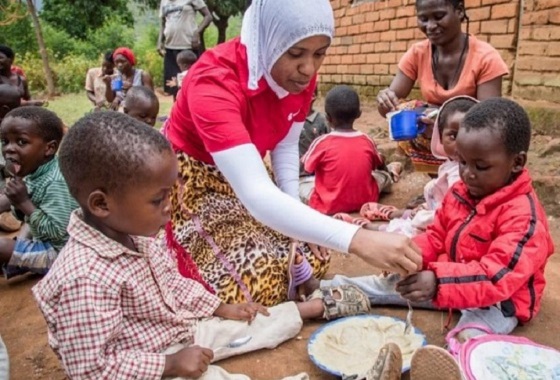August 10, 2022
SEEMS-Nutrition project advances work on evaluating benefits of nutrition-sensitive interventions for maternal-child health
 Following a two-year funding extension starting in November 2021, the Strengthening Economic Evaluation for Multi-sectoral Strategies for Nutrition (SEEMS-Nutrition) project has continued progress to collect cost data alongside six on-going interventions, and to generate new evidence on costs and cost-effectiveness of multi-sectoral nutrition projects in five country settings. This past year, the team published two new manuscripts and delivered an oral presentation at the 7th Annual Agriculture, Nutrition & Health Academy Week (ANH2022) on June 29th.
Following a two-year funding extension starting in November 2021, the Strengthening Economic Evaluation for Multi-sectoral Strategies for Nutrition (SEEMS-Nutrition) project has continued progress to collect cost data alongside six on-going interventions, and to generate new evidence on costs and cost-effectiveness of multi-sectoral nutrition projects in five country settings. This past year, the team published two new manuscripts and delivered an oral presentation at the 7th Annual Agriculture, Nutrition & Health Academy Week (ANH2022) on June 29th.
The recent publications advance the project’s work on understanding the benefits of multi-sectoral approaches for improving maternal and child health nutrition. Such interventions can help improve access to nutritious foods through improved household agriculture production with strong behavior change communication to promote optimal dietary and feeding practices during critical windows of time when nutritional needs are the greatest.
In “Measurement of benefits in economic evaluations of nutrition interventions in low- and middle-income countries: a systematic review,” the authors systematically reviewed 93 economic evaluations of nutrition interventions conducted in LMIC settings. They aimed to understand the range of benefits related to nutrition; how they have been measured and valued, and the terminology used in different sectors to refer to these benefits. Read the publication in Maternal and Child Health.
In “Nutrition-sensitive agriculture programs increase dietary diversity in children under 5 years: A review and meta-analysis,” the authors draw attention to how nutrition-sensitive agriculture programs address the underlying determinants of malnutrition, yet their contributions to improving children’s diets are not factored into current nutrition impact modeling tools. The results of their literature search of published multisectoral agriculture and nutrition trials show the interventions’ positive impacts on dietary diversity among children under five years old in LMIC settings. The authors advocate incorporating this evidence in nutrition modeling tools, which can contribute to decision-making on the benefits of nutrition-sensitive interventions with other maternal, newborn, child health and nutrition interventions. Read the publication in The Journal of Global Health.
At ANH2022, Amy Margolies of the International Food Policy Research Institute, a SEEMS-Nutrition partner organization, presented an abstract titled, “The development of a dashboard to aggregate the relative costs and benefits of nutrition-sensitive programs,” that summarized the team’s process to develop a “scoring” method to meaningfully compare multiple benefits of nutrition-sensitive programs. Though these programs target similar maternal-child groups, the activities to reach them may vary and thus, presents challenges to systematically value benefits. The dashboard is intended to be a starting point and offer an opportunity to strengthen and standardize evaluation approaches and measurement. View the presentation slides.